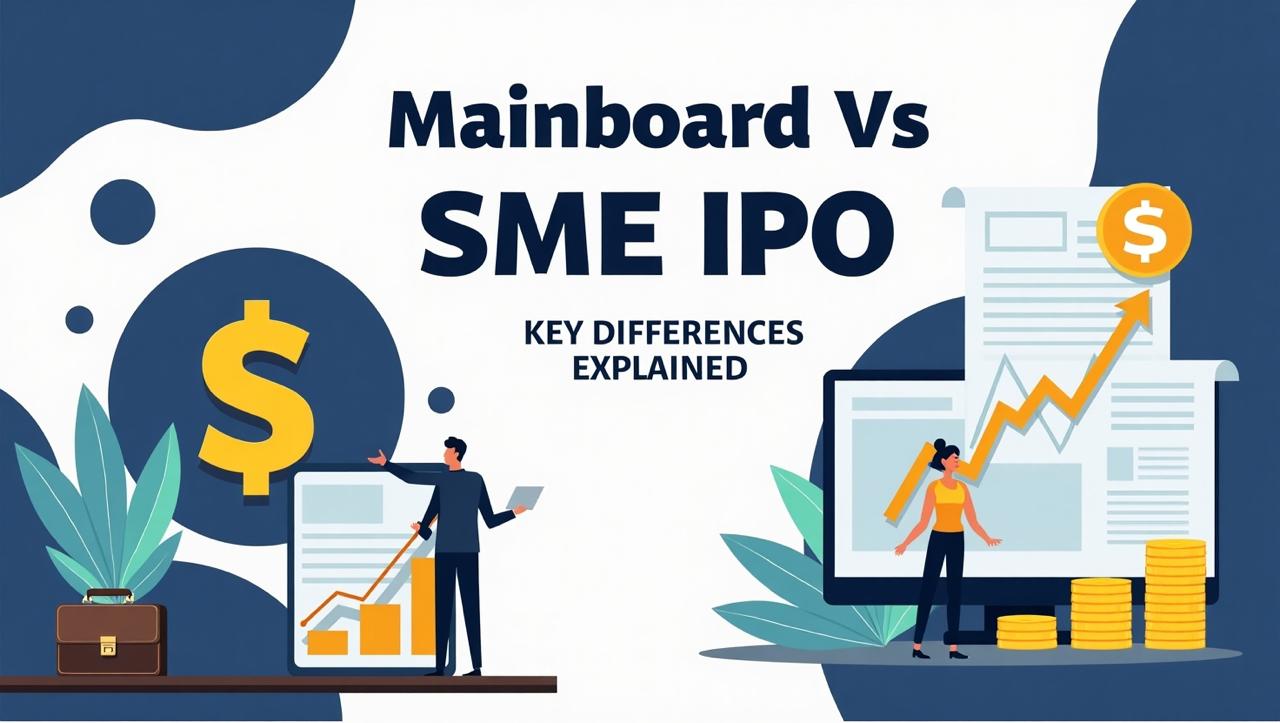The SME capital market is evolving—and so are its regulatory frameworks. In a significant step towards enhancing investor protection, improving transparency, and streamlining the bidding mechanism, the National Stock Exchange of India (NSE) has issued a circular (Ref. No: NSE/IPO/68604) that outlines the revised SME IPO Rules, as directed by the Securities and Exchange Board of India (SEBI).
NSE updates SME IPO bidding rules: higher minimum bid size, new timing rules, and key procedural changes to streamline participation and compliance. These changes are aligned with the amendments made to the SEBI (Issue of Capital and Disclosure Requirements) (ICDR) Regulations, 2025, and will be effective for all SME IPOs opening on or after July 1, 2025.
Detailed Overview of the New SME IPO Rules
Here’s a detailed breakdown of the revised bidding norms applicable to all SME IPOs from July 1, 2025:
1. Introduction of ‘Individual Investor’ Category in SME IPOs
One of the most notable changes is the replacement of the Retail Individual Investor (RII) category with a newly defined Individual Investor category.
Under the new definition:
- An Individual Investor is one who applies for a minimum of 2 lots.
- The minimum application amount must exceed ₹2 lakhs.
- This effectively reclassifies many retail applicants into a higher investment bracket, changing the access structure of SME IPOs significantly.
- This move will encourage more serious, long-term retail participation in the SME segment.
2. Cut-Off Price Option Discontinued in SME IPO Bidding
The Cut-off Price facility — a popular bidding choice among retail investors in the mainboard IPOs — will now no longer be available in any bidding category for SME IPOs.
This means:
- Investors must explicitly mention the price at which they wish to apply.
- There will be no automatic price alignment with the discovered issue price.
This brings enhanced price discovery transparency and demands greater awareness and preparation from investors before placing bids.
3. Restriction on Bid Modification and Cancellation Under SME IPO Rules
Under the updated SME IPO rules, downward modification and cancellation of bids will no longer be permitted across all categories.
This provision aims to:
- Reduce speculative bidding behavior.
- Ensure more committed and planned participation.
- Streamline the final subscription figures more effectively.
4. Revised Timelines for Bidding and UPI Mandate Confirmation for SME IPOs
To tighten operational efficiency, new timelines have been introduced:
- Bidding will close at 4:00 PM on the last day for all investor categories.
- UPI mandate acceptance will be available till 5:00 PM on the same day.
These defined deadlines will improve the synchronization between exchanges, intermediaries, and payment systems, ultimately ensuring a smoother settlement process.
5. SME IPO Norms for Reserved Categories
The new SME IPO rules also update norms for reserved investor segments:
- Employees, Shareholders, and Policyholders must apply for a minimum of 2 lots (above ₹2 lakhs).
- For employees, bids should not exceed ₹5 lakhs and must be in multiples of the lot size.
This brings uniformity and alignment across all preferential investor groups.
6. Updated Application Size for QIBs and NIIs in SME IPOs
Qualified Institutional Buyers (QIBs) and Non-Institutional Investors (NIIs) must now apply for more than 2 lots, reflecting the regulator’s intent to position the SME IPO platform for more significant and strategic participation.
Impact of the New SME IPO Rules on Issuers and Investors
What SME Should Know
- The new SME IPO rules streamline the bidding framework, making the process more predictable and investor-friendly.
- Issuers can expect better price discovery and improved participation from serious investors.
- Reduced cancellations and downward modifications mean greater stability in the IPO process.
What Investors Must Consider
- The clear definition of Individual Investors and minimum bid sizes discourages speculative bidding.
- Removal of cut-off price bids promotes active price discovery, benefiting genuine investors.
- Reserved categories benefit from well-defined bidding limits.
- Institutional and Non-Institutional investors will have to comply with higher minimum application sizes, ensuring quality bids.
Preparing for SME IPOs Under the New Norms
SME companies planning to go public need to align their strategies with the revised SME IPO rules. Investors are advised to familiarize themselves with the new bidding process to optimize their application strategies under the changed norms.
Why the New SME IPO Rules Matter for India’s Capital Market?
The SME IPO rules effective July 1, 2025, mark a pivotal shift in India’s SME capital market landscape. These changes aim to create a more transparent, efficient, and disciplined bidding process, fostering better outcomes for issuers and investors.
Source Links













